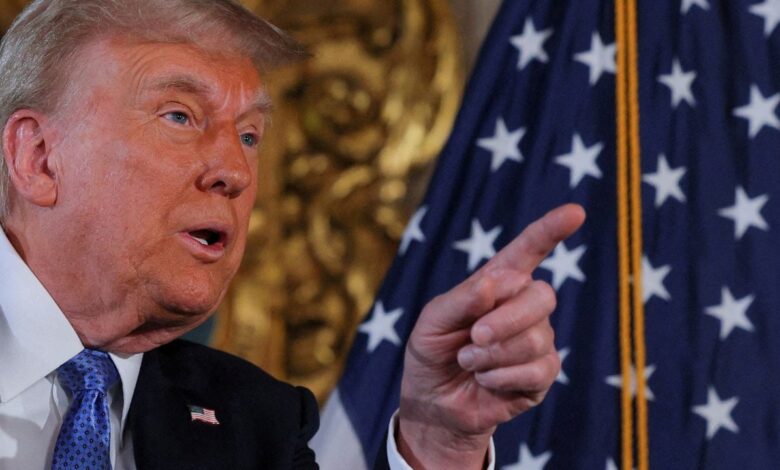Donald Trump’s policies may be a risk for emerging markets and developing economies: IMF

HomeWorld NewsDonald Trump’s policies may be a risk for emerging markets and developing economies: IMF
Trump’s economic policies—such as tax cuts, deregulation, and restrictions on immigration—could drive inflation higher in the short term.
 By Ajay Vaishnav January 17, 2025, 11:31:01 PM IST (Published)
By Ajay Vaishnav January 17, 2025, 11:31:01 PM IST (Published)

The International Monetary Fund (IMF) has expressed concerns over the potential economic impact of President-elect Donald Trump’s proposed policies, warning of significant risks, particularly for inflation and the global economy. While the IMF expects the world economy to grow at a modest 3.3% in 2025—slightly higher than 2024’s 3.2%—Trump’s plans could disrupt this trajectory.
Central to Trump’s economic agenda are tariffs, which he views as a tool to protect US jobs, boost tax revenue, and stimulate the economy. He has threatened to impose tariffs on China, Canada, and Mexico, starting from his first day in office. Additionally, Trump has proposed a 100% tariff on the BRICS nations if they attempt to establish a rival currency to the US dollar.
Trump’s economic policies—such as tax cuts, deregulation, and restrictions on immigration—could drive inflation higher in the short term. Looser fiscal measures are expected to stimulate demand, raising consumer spending and business activity. On the supply side, tariffs and immigration curbs could restrict trade and reduce the availability of low-cost labor, resulting in negative supply shocks that could exacerbate price pressures. The combination of surging demand and shrinking supply is likely to reignite inflation, presenting challenges for price stability in the US.
The IMF also warns that a tighter US monetary policy and a stronger dollar could create financial instability, particularly for emerging markets. A stronger dollar could make it more difficult for countries with US dollar-denominated debt to service their obligations.
While the IMF has raised its US growth forecast for 2025 to 2.7%, from an earlier projection of 2.2%, it remains less optimistic about Europe, expecting only 1% growth in the Eurozone. In China, growth is expected to slow further due to a downturn in real estate and weak consumer confidence.
Globally, inflation is forecast to decrease from 5.7% in 2024 to 4.2% in 2025, though Trump’s policies could delay or disrupt this trend. The IMF’s outlook remains cautious, with risks to global stability, especially in low-income nations.
With inputs from agencies



